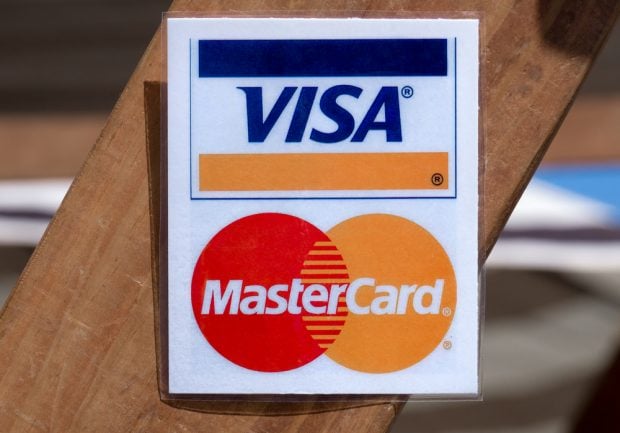The issue of revenue that banks and credit unions make fromtransactions on their debit cards moved from the obscure corners ofthe financial services industry into the national spotlight lastweek as the Federal Reserve's debit interchange cap came intoeffect.
|The cap, which reduced debit card interchange for large cardissuers from an average of 44 cents per transaction to an averageof 24 cents, became operational Oct. 1.
|At first the cap's advent seemed destined to be a side issuesuitable to the financial services industry trade press. Butthe decision by Bank of America to start chargingcardholders a $5 per month fee for the use of their debit cardscatapulted it out of the wonky laps of economists and lawyers andonto the national stage.
|President Barack Obama brought it up as an example of somethingthat would have been harder to do if the Consumer FinancialProtection Bureau had been up and running.
|In an interview with ABC News, Obama said the fee “is exactlywhy we need somebody whose sole job it is to prevent this kind ofstuff from happening” and contended that the CFPB is the type ofstrong watchdog agency the U.S. needs to crack down on cases likethis.
|The bank largely refrained from commenting on the fee, but mediaoutlets reported from its website and letters to accountholdersthat the fee will not be levied if the consumer uses his or hercard at an ATM and that even one use of the debit card at an pointof sale terminal would be enough to trigger the fee.
|On some accounts that already carry fees for not having minimummonthly balances of at least $1,500, the addition of the debit cardfee will increase monthly fees to between $17 and $20.
|Media outlets also reported consumers saying they would eitherchange financial institutions or change the way they pay forthings, including going back to using cash and checks, because ofthe fee.
|Other banks remained largely quiet about the fees they startedto charge, but a wide variety of newspapers in the countryeditorialized against it as an example of what happens when banksare deprived from income in one area. They begin to make it up somewhere else.
|“Durbinassumes the retailers will pass the savings onto the consumer,”editorialized the conservative-leaning The WashingtonTimes on Oct. 1. “There is no indication they will. Theretailers could very well just add the money to their bottom line.Home Depot estimates they could see a $35 million benefit from thispiece of legislation.”
|And hard data began to come in, too. Heartland Payment Systems,the merchant processing firm, announced that between Oct. 1 andOct. 3, the firm paid out over $1.7 million in Durbin savings toits retail clients. More than $671,000, the firm said, went torestaurant retailers.
|“These savings are just the tip of the iceberg,” said BobBaldwin, president at Heartland. “Durbin dollars should stay wherethey belong–in merchants' bank accounts–and Heartland is helpingbusiness owners keep more of their hard-earned cash. Merchantsshouldn't take this for granted. They need to be vigilant inensuring they receive the cost savings they deserve so they don'tunknowingly fall victim to processors looking to profit at theirexpense.”
|For his part, Sen. Richard Durbin (D-Ill.) fought back againsthis critics, taking to the Senate floor to denounce Bank of Americaand other larger banks for imposing the fees. In particular, Durbinalleged that far from taking a loss from the interchange cap, the$5 fee will let the bank make money.
|Durbin said he wrote a letter to Bank of America CEO BrianMoynihan that included Durbin's calculations on the bank's lossesfrom the interchange cap.
|“Guess what? If you do the calculation, the $5 a month on thenumber of reported debit cardholders of Bank of America, this willbring back twice as much as their projected loss on this new law,”he concluded.
|On a Oct. 4 press call, Durbin argued that reaction to hisamendment capping debit card interchange represents an opportunityfor credit unions and community banks.
|And in a letter to the Illinois Credit Union League, IllinoisBankers Association and Community Bankers Association of Illinois,Durbin argued that the increase in fees from larger banks givesthem a strong competitive advantage.
|“Now is the moment for smaller banks and credit unions to makecrystal clear to these consumers the superior benefits and customerservice that your institutions provide compared to the Wall Streetgiants. I strongly urge your institutions to seize this competitiveopportunity, as this will serve both consumers' best interests andyour own.”
|Durbin also noted that both Visa and MasterCard have issuedinterchange schedules that, he said, should eliminate the fear thatthe cap will hurt the income of smaller financial institutions. Hereferenced a letter from 10 retail associations, includingthe National Retail Federation that declared that retailers wouldnot discriminate against cards from credit unions or communitybanks because of their higher interchange.
|“Currently, merchants are subject to Visa and MasterCard networkrules that require us to accept all Visa and/or MasterCard debit,regardless of which bank or credit
|union issues the card,” the merchants wrote to Durbin in the May2 letter.
|“This is called the honor all cards rule, and we risk the threatof $5,000 per day fines–or higher–if we break this rule, so weassure you that merchants have no intention of violating this termof brand acceptance. These rules also prevent merchants frompricing goods differently based upon the financial institution thatissued the card.”
Complete your profile to continue reading and get FREE access to CUTimes.com, part of your ALM digital membership.
Your access to unlimited CUTimes.com content isn’t changing.
Once you are an ALM digital member, you’ll receive:
- Critical CUTimes.com information including comprehensive product and service provider listings via the Marketplace Directory, CU Careers, resources from industry leaders, webcasts, and breaking news, analysis and more with our informative Newsletters.
- Exclusive discounts on ALM and CU Times events.
- Access to other award-winning ALM websites including Law.com and GlobeSt.com.
Already have an account? Sign In
© 2024 ALM Global, LLC, All Rights Reserved. Request academic re-use from www.copyright.com. All other uses, submit a request to [email protected]. For more information visit Asset & Logo Licensing.









